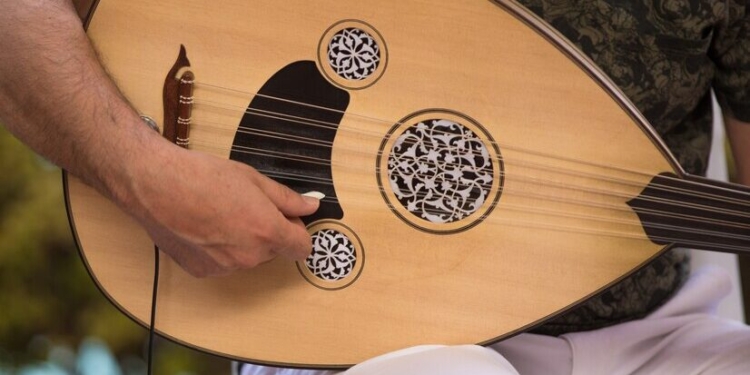Morocco, located in North Africa, is home to a rich and diverse musical heritage. Moroccan music is a fusion of traditional and contemporary sounds that has been shaped by various cultural and historical influences over the centuries.
From the Amazigh to the Arab conquerors, from the Andalusian exiles to the French colonizers, Moroccan music has incorporated elements from different musical traditions to create a unique sound that reflects the country’s cultural identity.
The History of Moroccan Music
Moroccan music has a long and varied history that dates back to prehistoric times. The Berbers, the indigenous people of North Africa, had their own musical traditions that were later influenced by Arab, Jewish, and Andalusian music.
In the 10th century, the Arab conquerors brought their own musical traditions, which were further enriched by the contributions of Jewish and Andalusian exiles who fled to Morocco after the fall of Al-Andalus in 1492. Western music also had a significant impact on Moroccan music, leading to the emergence of new genres such as chaabi and gnawa.
The Elements of Moroccan Music
Moroccan music is characterized by a wide range of instruments, rhythms, and melodies. The most common instruments used in Moroccan music include the oud, a stringed instrument similar to a lute, the qanun, a type of zither, and the darbuka, a drum.
The rhythms of Moroccan music are complex and often based on a 4/4 time signature, while the melodies are influenced by Arabic and Andalusian music. The use of call-and-response vocals is also a common feature of Moroccan music.
Traditional Genres of Moroccan Music
Moroccan music can be classified into several traditional genres, each with its own unique characteristics. One of the most popular genres is Andalusian music, which originated in Al-Andalus and was brought to Morocco by exiles after the fall of Granada in 1492.
Andalusian music is characterized by its intricate melodies and the use of the oud and the qanun. Another popular genre is chaabi, which originated in the urban centers of Morocco and is characterized by its lively rhythms and danceable beats.
Contemporary Genres of Moroccan Music
In recent years, Moroccan music has undergone a transformation, with the emergence of new genres that blend traditional Moroccan music with Western influences.
One of the most popular contemporary genres is rap, which has become increasingly popular among Moroccan youth.
Moroccan rap often addresses social and political issues and is characterized by its use of Arabic and French lyrics. Another popular genre is fusion music, which combines elements of Moroccan music with other musical traditions such as jazz, rock, and electronic music.
Famous Moroccan Musicians
Morocco has produced many famous musicians who have made significant contributions to the world of music.
One of the most well-known Moroccan musicians is the late Mahmoud Guinia, a master of the guembri, a type of three-stringed bass guitar used in gnaoua music.
Another famous musician is Hassan Hakmoun, a singer and master of the sintir, a type of three-stringed bass guitar used in Gnawa music.
Other notable Moroccan musicians include Oum, a singer known for her soulful voice, and Samira Said, a pop singer who has sold millions of records in the Arab world.
The Role of Music in Moroccan Culture
Music plays a significant role in Moroccan culture and is an integral part of many social and religious events.
In Morocco, music is used to celebrate weddings, births, and other important milestones in people’s lives. It is also an important part of religious ceremonies, particularly during Ramadan, when traditional Moroccan music is performed in mosques and other religious settings.
Moroccan music is also used as a means of political and social expression, with many artists using their music to address issues such as poverty, corruption, and human rights.
Moroccan Music Festivals
Moroccan music festivals are an important part of the country’s cultural scene, attracting visitors from around the world.
One of the most famous festivals is the Fes Festival of World Sacred Music, which takes place annually in the city of Fes and features performances by musicians from around the world.
Other popular festivals include the Gnawa World Music Festival, the Essaouira Gnaoua and World Music Festival, and the Mawazine World Music Festival.
The Future of Moroccan Music
The future of Moroccan music looks bright, with many young musicians continuing to push the boundaries and experimenting with new sounds and genres.
The rise of digital platforms such as YouTube and SoundCloud has also provided a new avenue for Moroccan musicians to showcase their talent and reach a global audience.
Last but not least
Moroccan music is a rich and diverse art form that reflects the country’s cultural identity and history. From traditional genres such as Andalusian music to contemporary genres such as rap and fusion music, Moroccan music continues to evolve and thrive.
With the rise of digital platforms and the continued experimentation by young musicians, the future of Moroccan music looks bright.


